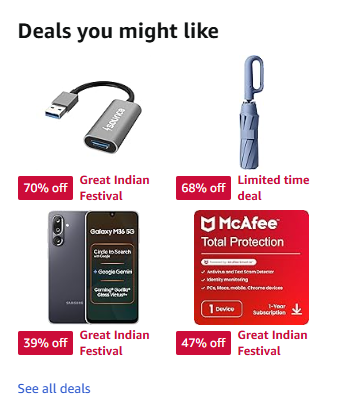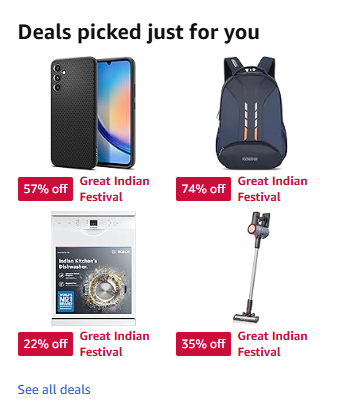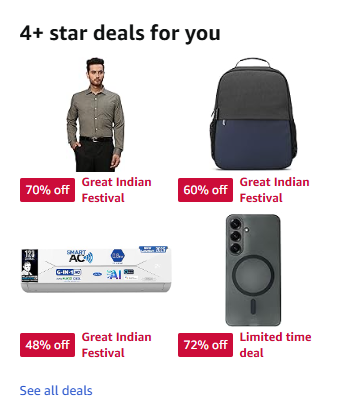Amazon Basics: Affordable Quality for Everyone
What Is Amazon Basics?
Amazon Basics (often styled AmazonBasics) is Amazon’s flagship private-label brand, launched around 2009.
It spans a huge variety of product categories — from tech accessories, cables, and chargers, to home goods, office supplies, travel gear, and more.
The core idea is simple: offer a no-frills, broadly useful product line under Amazon’s name, priced lower than many name brands, while leveraging Amazon’s supply chain, scale, and distribution.
How Amazon Delivers Quality at Affordable Price
Amazon uses several levers to make Amazon Basics competitive in cost and acceptable in quality:
1. Scale & Supply Chain Leverage
Because Amazon orders large volumes, it can negotiate favorable terms with manufacturers. It can also consolidate logistics, packaging, and shipping costs. This economy of scale lets AmazonBasics compete on price.
2. Supplier Vetting & Quality Controls
Amazon states that it applies rigorous quality and safety standards before products launch. It vets suppliers, audits factories, and runs third-party lab tests (ISO/IEC 17025 labs, etc.).
Still, quality varies by category, because Amazon sources from many suppliers across geographies.
3. Minimal Branding, Efficient Packaging
AmazonBasics often skips fancy branding, elaborate packaging, or premium materials. It trades extras for core function. The brand name, packaging, and presentation are kept simple to reduce markup overhead.
4. Selective Innovation (Not Cutting-Edge)
Amazon Basics tends to produce tried-and-tested types of goods (cables, chargers, storage, home essentials). It rarely leads in bleeding-edge features (e.g. first in class innovation). Instead, it focuses on reliable function at a fair cost.
Together, these factors let Amazon offer many items 10–30% cheaper than comparable name brands in many cases.
How Amazon Basics Compares with Competition
Amazon Basics competes with:
- Big brand names (e.g. Duracell, Belkin, Anker)
- Other private label / house brands
- Independent specialty manufacturers
Here’s how it holds up:
| Strength | Amazon Basics | Notes / Caveats |
|---|---|---|
| Price advantage | Often lower | In many comparisons, AmazonBasics wins purely by price while being “good enough” |
| Availability & trust | Very high | As a house brand, it’s backed by Amazon infrastructure (returns, Prime shipping, trust factor) |
| Range & convenience | Very broad | One stop shop — many categories under one umbrella |
| Quality consistency | Mixed | Some products are excellent (cables, batteries, etc.), others less so. Quality can vary between batches and suppliers |
| Innovation / differentiation | Modest | Focuses on essentials rather than trendsetting features |
| Trust & safety assurances | Moderate | Amazon claims safety processes, audits, lab tests. About Amazon Some past product safety issues have been reported. |
In real use, many users say that for everyday items (cables, chargers, organizers, storage, basic home goods), Amazon Basics gives “good enough” to “very good” performance for the savings.
However, for premium categories (like advanced electronics, home appliances where performance margins matter), you should research specifically.
What You Can Get on Amazon Basics
The product catalog is wide. Some representative product categories include:
- Tech & electronics
- Chargers, cables, power banks, batteries, SD / microSD cards, audio accessories
- Home & kitchen goods
- Storage containers, kitchen tools, glassware, cookware, linens, towels
- Office & school supplies
- Binders, folders, sheet protectors, pencils, organizers
- Travel & luggage
- Suitcases, travel organizers, carry accessories
- Home essentials
- Lighting (bulbs), batteries, storage boxes, cleaning accessories
And more — Amazon Basics keeps adding items, making it a “something for everyone” portfolio.
Why You Should Visit (or Monitor) the Amazon Basics Page Often
Visiting the Amazon Basics storefront / listing page regularly is worthwhile because:
- Frequent additions & refreshes: new items get added; older ones upgraded.
- Price drops & deals: Amazon may run special discounts, Prime Day deals, or promotional bundles.
- Review insights: Early reviews show real user feedback.
- Stock & variants: New colors, sizes, bundles might appear.
- Quality improvements: Over time, incremental improvements or revisions may be pushed.
If you rely on Amazon for your essentials, keeping tabs on the Amazon Basics catalog helps you spot budget-friendly upgrades or replacements.
Use Cases: When Amazon Basics Makes Sense — and When It Doesn’t
Good use cases:
- Repeated or disposable items (e.g. cables, batteries, storage bins)
- Backups or spare components
- Abstract essentials you don’t need “premium branding” for
- Testing a category before upgrading
- Price-sensitive budgets or households
Where caution is needed:
- Life-critical devices (e.g. high-end electronics, medical gear)
- Performance-sensitive gear (e.g. high-end audio, professional camera accessories)
- Situations where safety or strict certification is mandatory
In those cases, balance between price and trust, read reviews, check warranties, and perhaps opt for name-brand in risk zones.
Challenges & Criticisms
- Quality inconsistency: Because Amazon sources from many suppliers, you may get variable batches.
- Safety issues: Some reports have flagged product safety issues (especially in electronics) with AmazonBasics items.
- Competition with sellers: For third-party sellers on Amazon, AmazonBasics can undercut pricing and rank higher in search.
- Perception ceiling: Some buyers always prefer “trusted brand name” and may avoid private labels a priori.
- Not always the best in class: In some reviews, specialty or premium brands outperform in features, aesthetics, or durability.
What It Means Strategically for Amazon
- Control over value chain: Having a strong private label gives Amazon more control over margins, inventory, returns, etc.
- Data leverage: Amazon may use platform data (trends, demands) to pick which Basics products to make.
- Competitive pressure: It puts downward pressure on competing brands.
- Brand reputation risk: If too many failures or safety issues emerge, the AmazonBasics brand could suffer.
Final Thoughts
Amazon Basics fills a smart niche in modern e-commerce: affordable essentials backed by Amazon’s infrastructure. For many everyday needs — from cables to kitchen gear — it offers compelling value. It’s not perfect or best in every category, but it strikes a solid balance.
Keywords
- Amazon Basics products
- Amazon Basics quality
- best Amazon Basics items
- Amazon in-house brand
- affordable Amazon products
- value for money Amazon
- Amazon Basics electronics
- Amazon Basics home essentials
- Amazon Basics office supplies
- Amazon Basics kitchen products
- Amazon Basics tech accessories
- Amazon Basics travel gear
- Amazon Basics vs branded products
- why Amazon Basics is worth it
- Amazon Basics reviews
- Amazon Basics deals
- cheap and reliable Amazon products
- Amazon Basics alternatives
- shop Amazon Basics
- top-rated Amazon Basics
- where to buy Amazon Basics
- best deals on Amazon Basics
- visit Amazon Basics store









